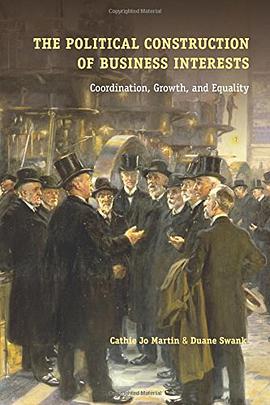The Political Construction of Business Interests
豆瓣
Coordination, Growth, and Equality
Cathie Jo Martin
简介
Many societies use labor market coordination to maximize economic growth and equality, yet employers' willing cooperation with government and labor is something of a mystery. The Political Construction of Business Interests recounts employers' struggles to define their collective social identities at turning points in capitalist development. Employers are most likely to support social investments in countries with strong peak business associations, that help members form collective preferences and realize policy goals in labor market negotiations. Politicians, with incentives shaped by governmental structures, took the initiative in association-building and those that created the strongest associations were motivated to evade labor radicalism and to preempt parliamentary democratization. Sweeping in its historical and cross-national reach, the book builds on original archival data, interviews and cross-national quantitative analyses. The research has important implications for the construction of business as a social class and powerful ramifications for equality, welfare state restructuring and social solidarity.
contents
Introduction; 1. Collective political engagement and the welfare state; 2. The political origins of coordinated capitalism; 3. The political origins of Danish employers' associations; 4. British experiments in national employers' organization; 5. Sectional parties, divided business in the United States; 6. The origins of sector coordination in Germany; 7. Twenty-first century breakdown: challenges to coordination in the post-industrial age; 8. Institutional sources of firms' preferences for the welfare state; 9. Employers, coordination, and active labor market policy in post-industrial Denmark; 10. Employers, coordination, and active labor market policy in post-industrial Britain; 11. The failure of coordination and rise of dualism in Germany; 12. The political foundations of redistribution and equality; Conclusion: 13. Social solidarity after the crisis of finance capitalism.